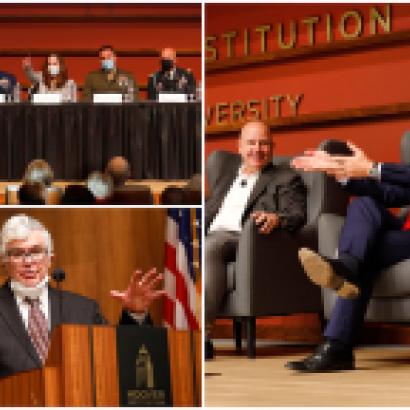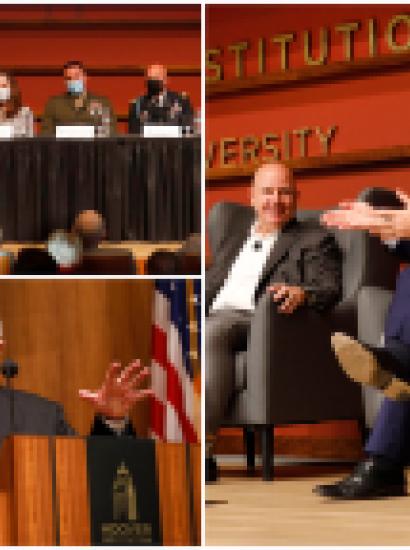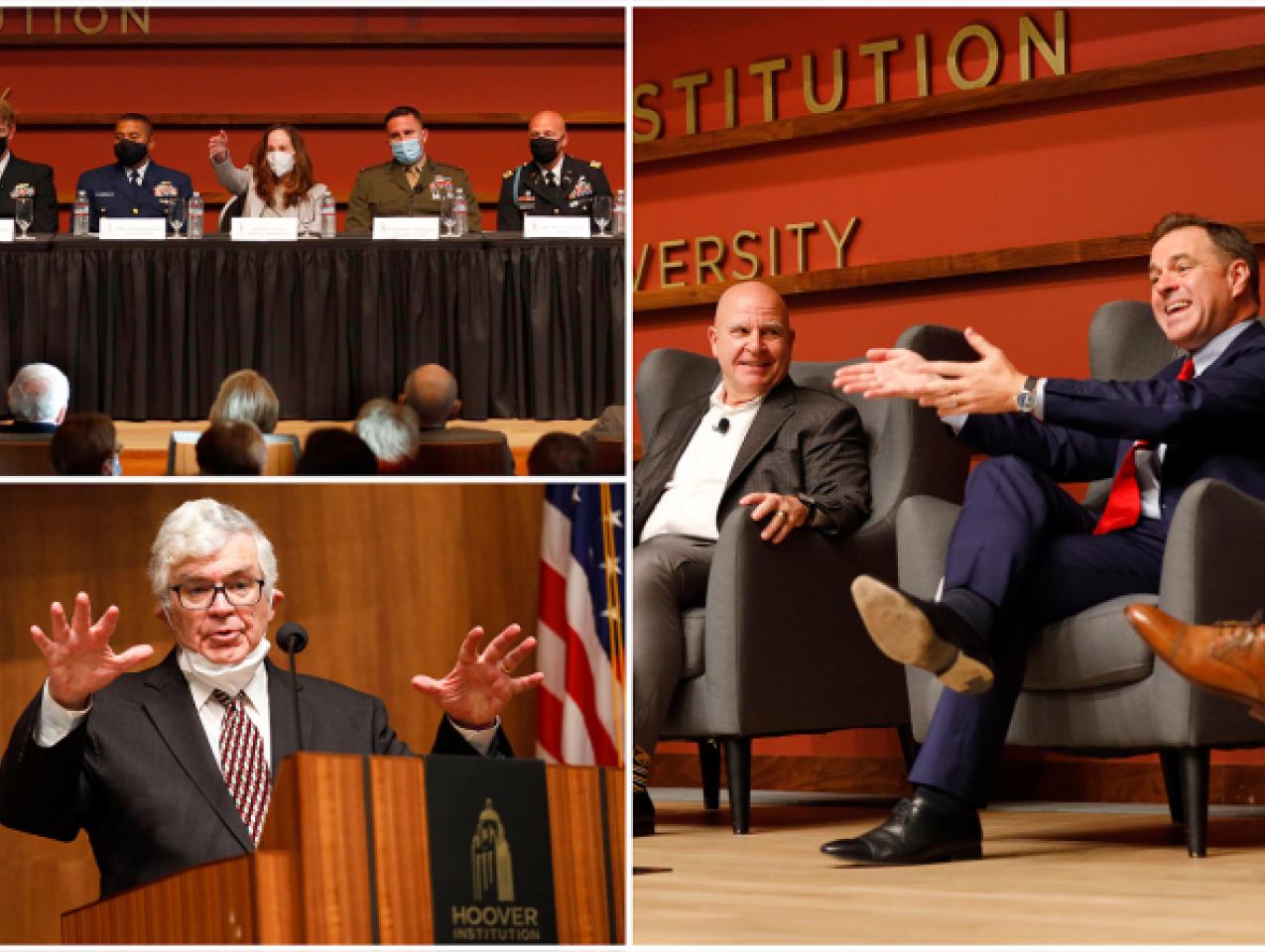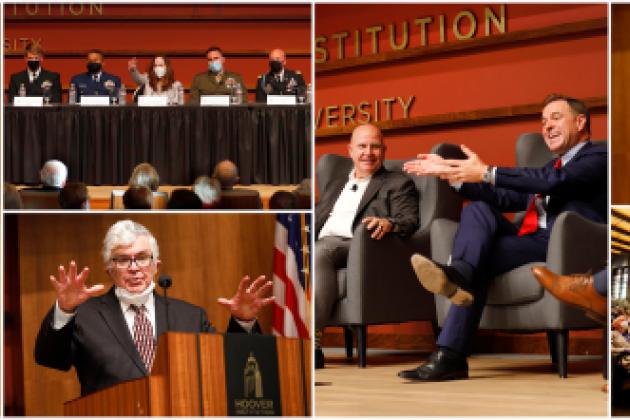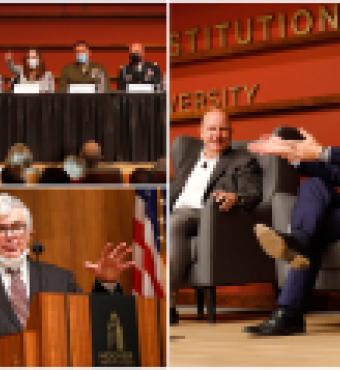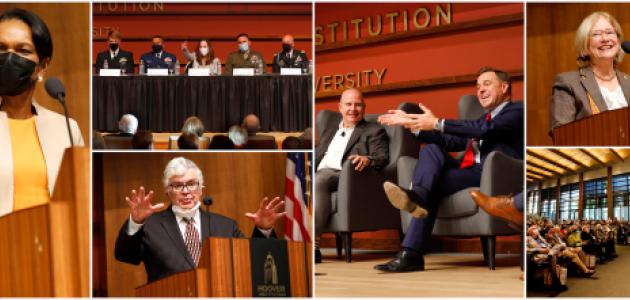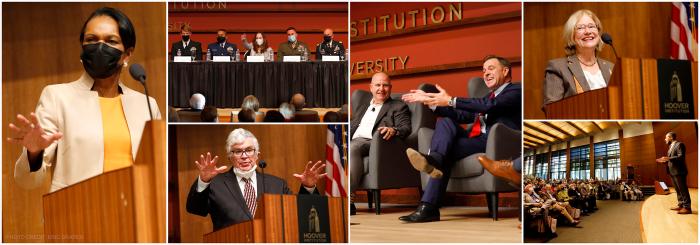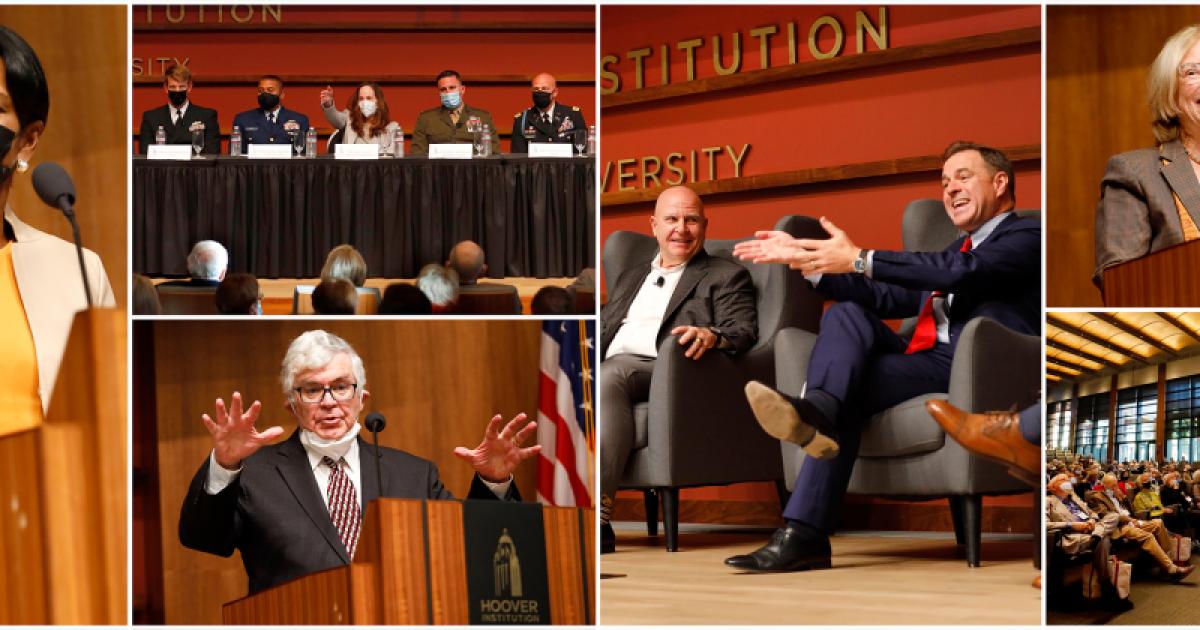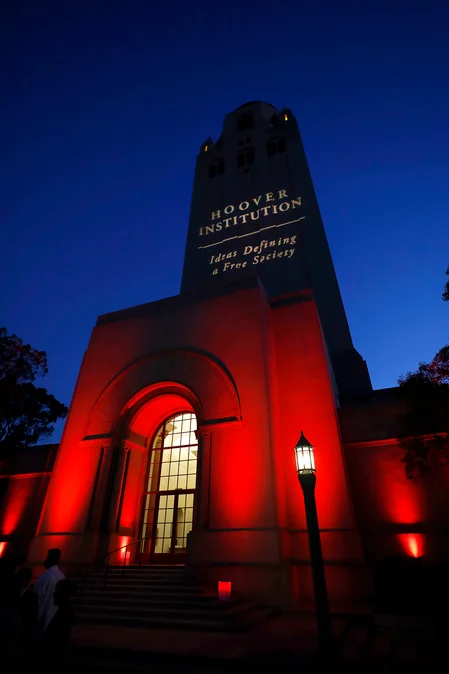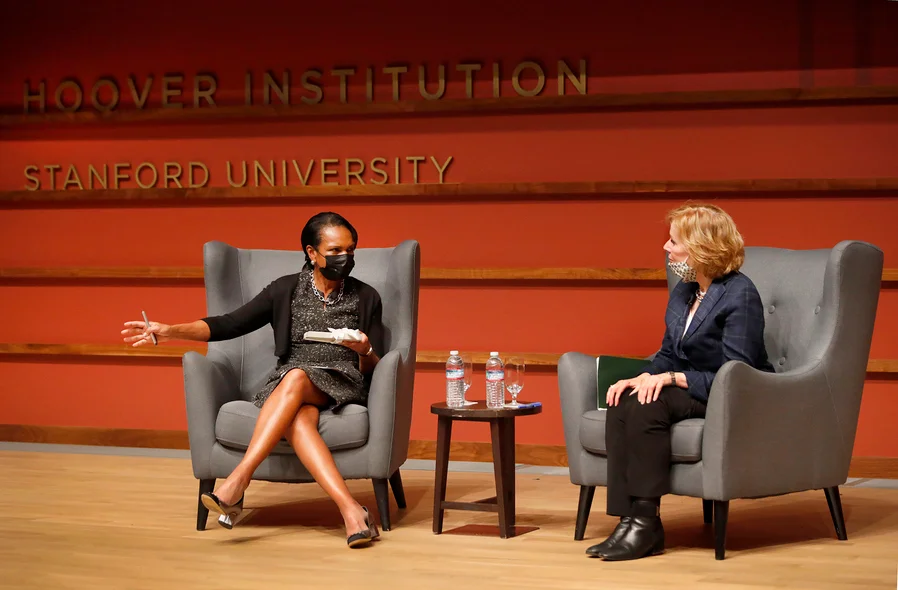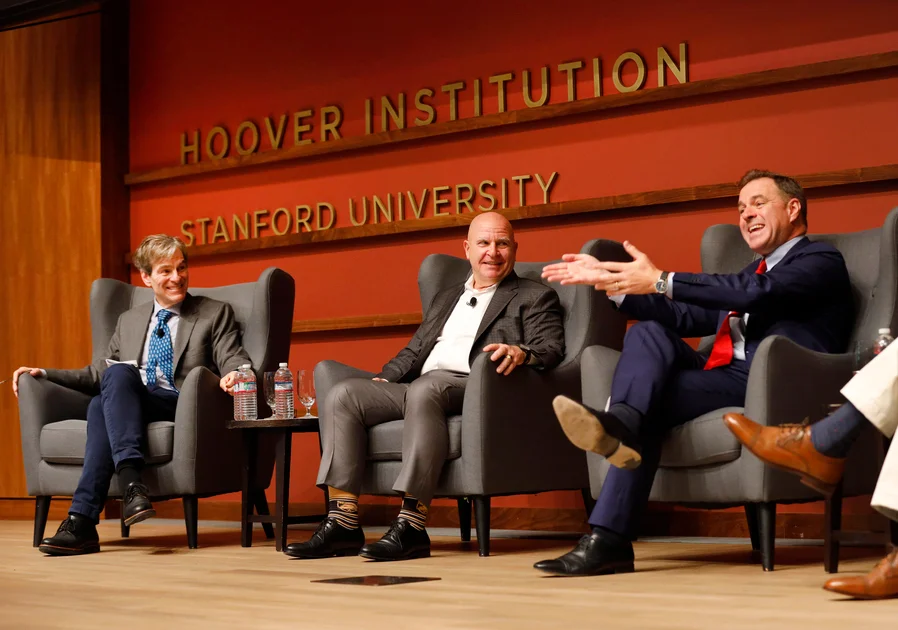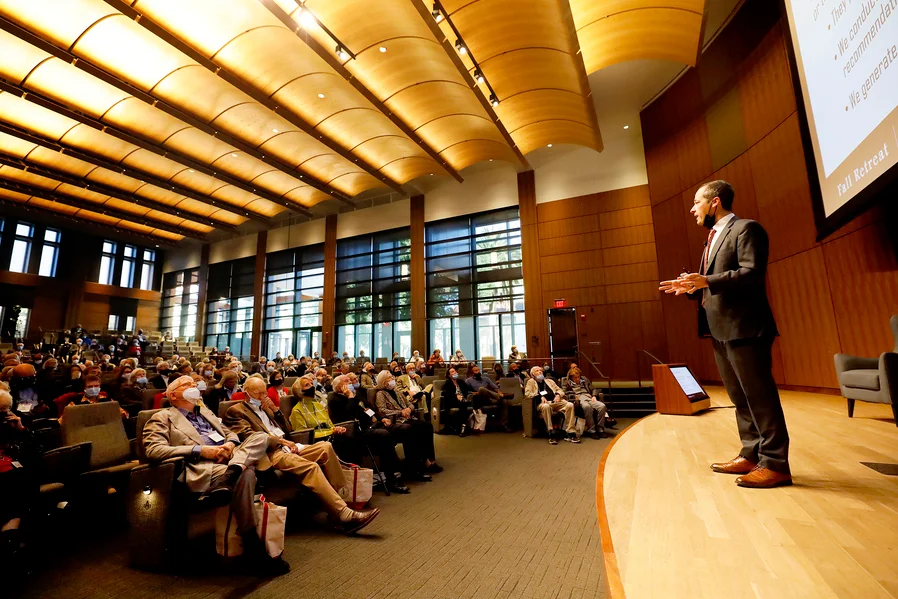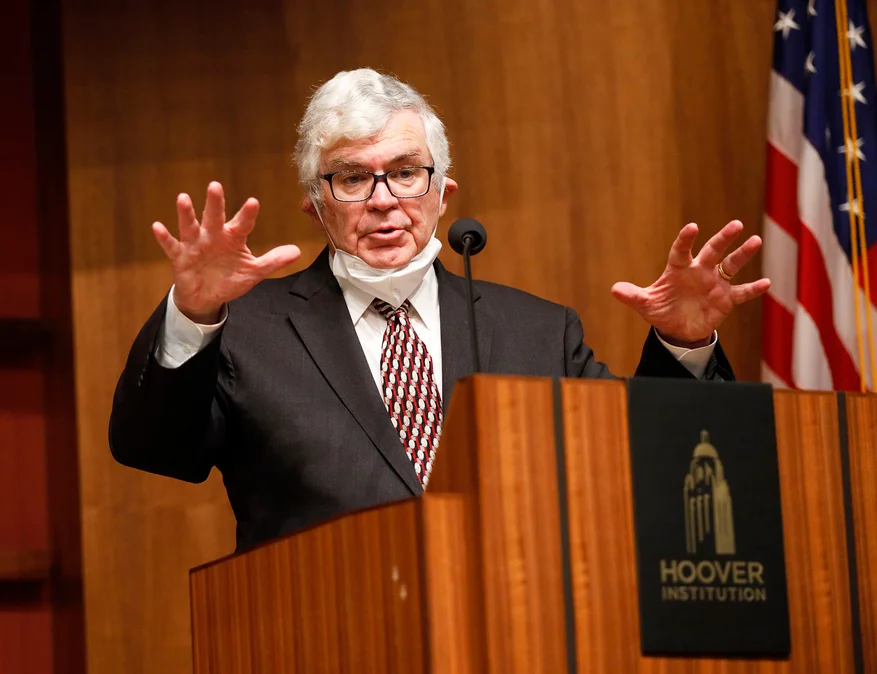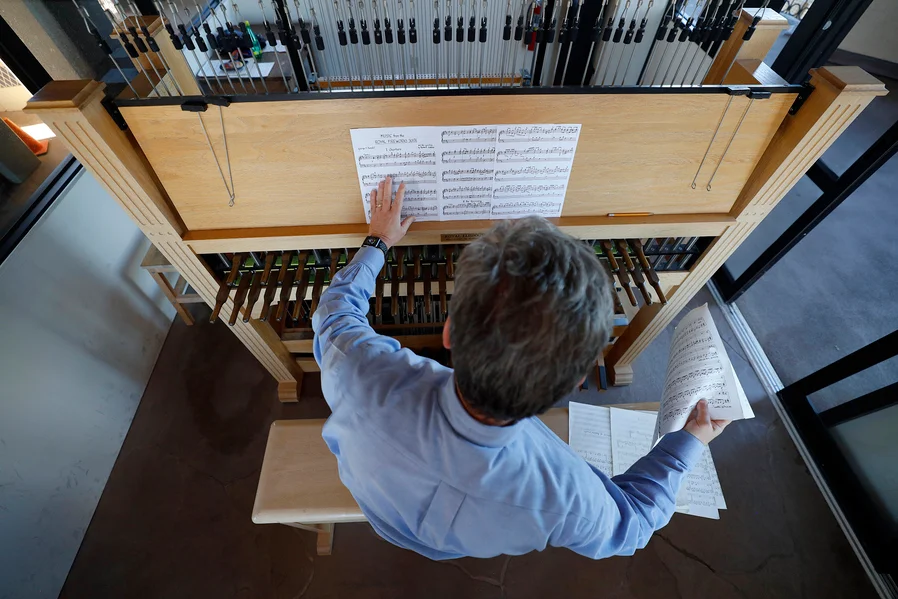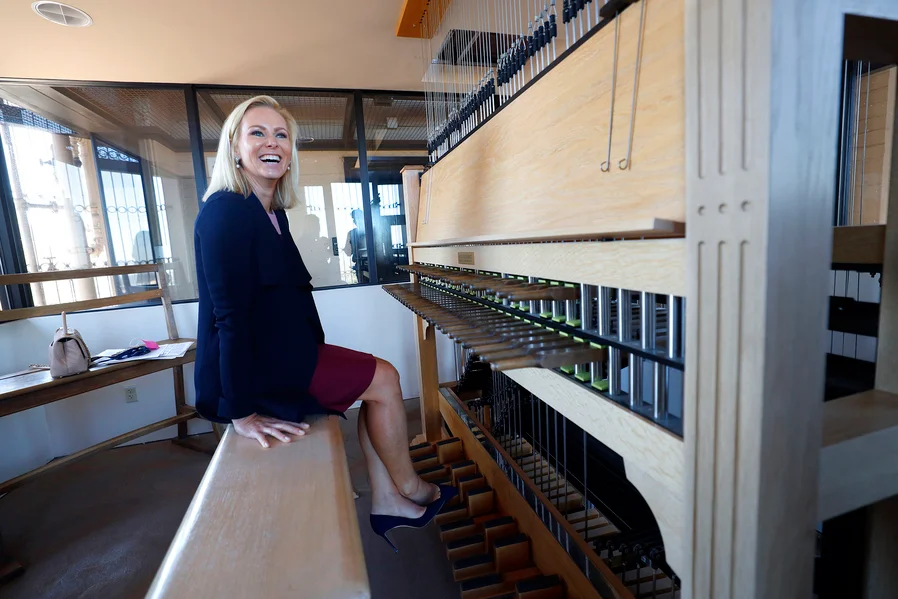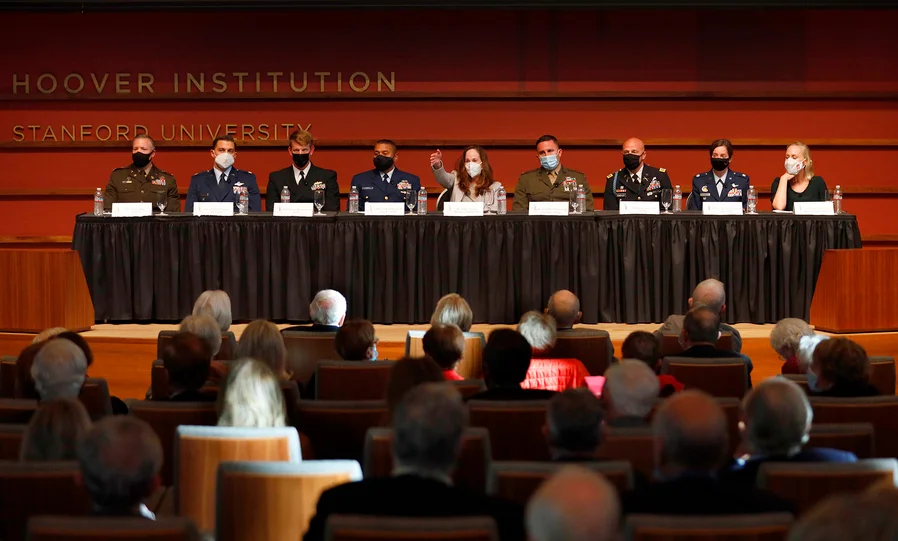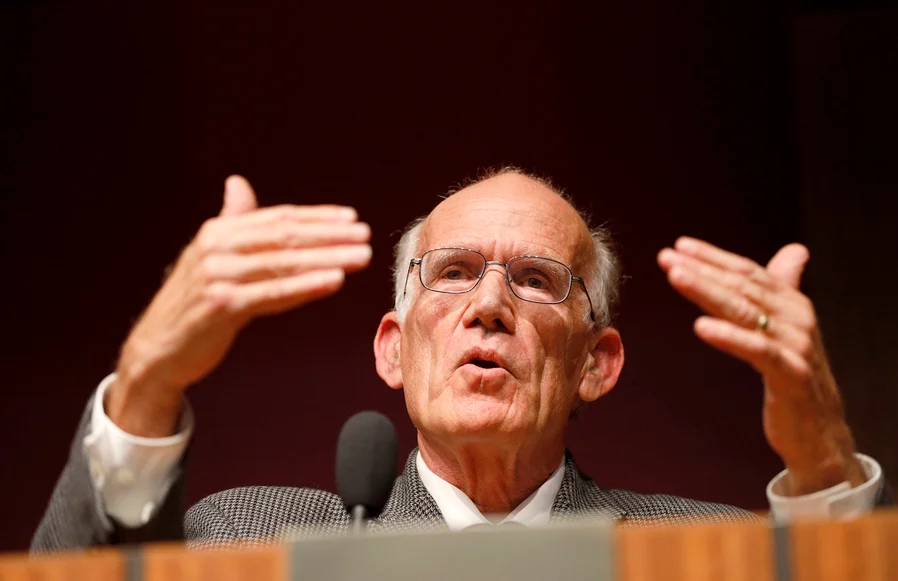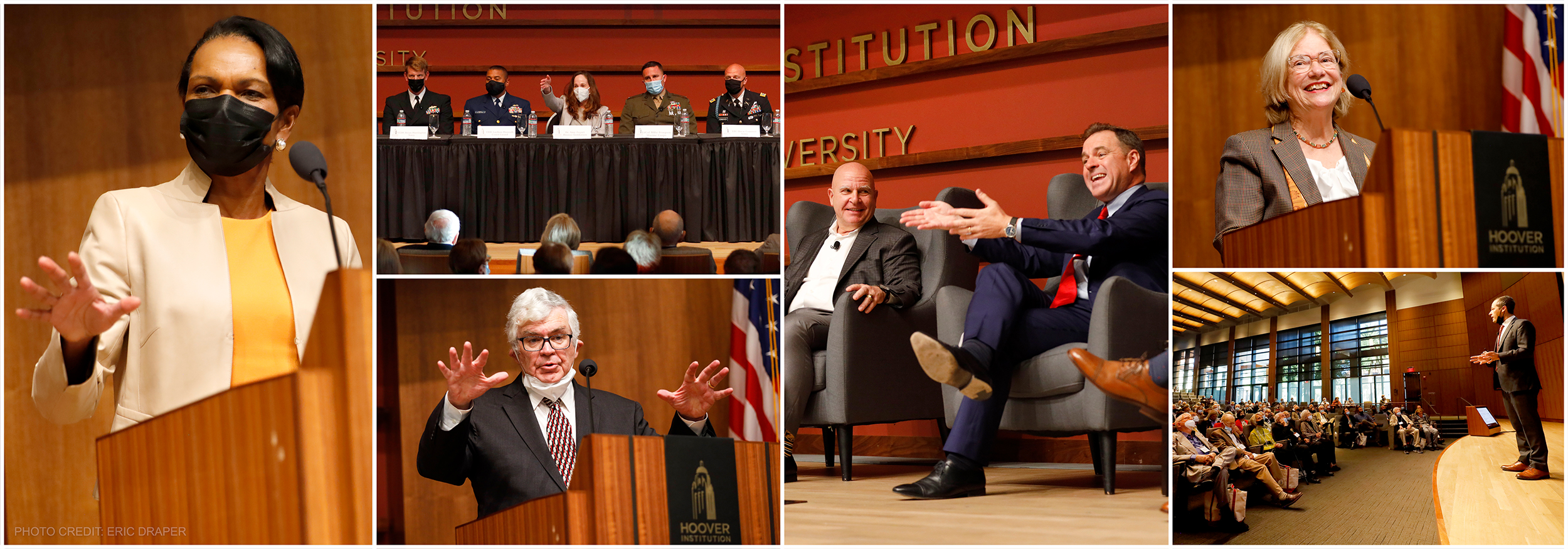
Hoover Institution (Stanford, CA) – The Hoover Institution welcomed its Board of Overseers and supporters for its first fall retreat in two years, on Thursday, October 28, and Friday, October 29. The event was not held last year due to COVID-19 public health restrictions on the Stanford University campus.
This year, the two days of programs featured scholars from the Hoover fellowship discussing various policy challenges facing America and the world.
On Thursday, the retreat began with welcoming remarks by Hoover director Condoleezza Rice, who provided an update on the current work of the institution. She introduced Senior Fellow Michael Boskin, who spoke about Hoover’s new Tennenbaum Program for Fact-Based Policy, of which Boskin leads the steering committee that identifies initial projects. Made possible by the generosity of Suzanne (Stanford ’75) and Michael E. Tennenbaum, the program, drawing on the research of Hoover scholars who are leaders in their respective fields, will assemble data on a wide range of issues, and produce analyses on how such data are being applied in policy debates and decision making.
Conversations that day started with Senior Fellow Eric Hanushek on whether disruptions in schooling during the pandemic presents an opportunity for policy makers to improve educational outcomes for students. Hanushek was followed by Senior Fellow Larry Diamond on how America and its allies can counter China’s threats to global freedom; and senior fellows Amy Zegart and John B. Taylor on the activity of the Technology, Economics, and Governance working group they co-chair, which focuses on a host of difficult issues, including America’s ability to compete technologically with China, the protection of American citizens and companies in cyberspace, the value of privacy in the digital age, and the protection of free speech in an era of disinformation.
The evening concluded with a “fireside chat” between Director Rice and Wall Street Journal opinion columnist Peggy Noonan about the state of America amidst the ongoing pandemic, and how the nation can overcome internal social and political divisions.
On Friday morning, Research Fellow Bill Whalen moderated the first live edition of GoodFellows with senior fellows John Cochrane, Niall Ferguson, and H. R. McMaster. This was followed by a talk with Senior Fellow Joshua Rauh on how the Hoover Institution is prioritizing the delivery of policy solutions to state and local governments beginning with current efforts in Alabama. He also discussed a future Hoover program focused on enhancing California’s economic competitiveness. John Taylor capped the morning’s discussions with a talk on why central banks should adhere to monetary policy rules as economies rebound from the COVID-19 pandemic.
That afternoon, Condoleezza Rice and former director of Library & Archives Elena Danielson led a dedication ceremony for the Hoover Tower Observatory and Carillon in memory of Lou Henry Hoover, the wife of President Herbert Hoover and a trailblazer in her own right, who was the first woman to graduate with a degree in geology from Stanford University. Danielson is the author of “For Peace Alone Do I Ring”: The History of the Lou Henry Hoover Carillon and Its Restoration, which has just been published in a new edition with a foreword by Rice. During the dedication Danielson spoke about the life and legacy of Lou Henry and the story behind the carillon that was brought to Stanford in 1941. As part of the dedication ceremony, guests enjoyed a Carillon concert performed by the university’s carillonneur, Timothy Zerlang,
Later in the afternoon, Amy Zegart moderated a discussion with Hoover’s 2021–22 class of National Security Affairs Fellows about their careers in defense of America and its interests, and how they hope to make the most of their experience at the institution.
The final program featured Senior Fellow Victor Davis Hanson, who talked about his new best-selling book, The Dying Citizen: How Progressive Elites, Tribalism, and Globalization Are Destroying the Idea of America.
Condoleezza Rice gave closing remarks at the retreat thanking all overseers and supporters in attendance.
“I hope that you have seen in these presentations the breadth of what we are doing here at the Hoover Institution, the depth of what we are doing at the Hoover Institution, the excellence of the people here at the Hoover Institution, and most extraordinarily for me the way that we are starting to touch the younger generation as well. I was so inspired by the National Security Affairs Fellows who come here to study and get a year off from their duties. And what to they do? They mentor our undergraduates and teach them about service,” Rice told retreat attendees. “I think there are very few places that can pull that off like the Hoover Institution. But the Hoover Institution cannot do any of those things without you. I just want to thank you from the bottom of my heart for the support that you provide, for your intellectual engagement with us, [and] for your financial support to us. I ask you to stay with us. We have big work to do ahead of us because the defense of those values — the defense of private enterprise, the defense of limited government, and the defense of personal freedom has never been more important than it is today.”







